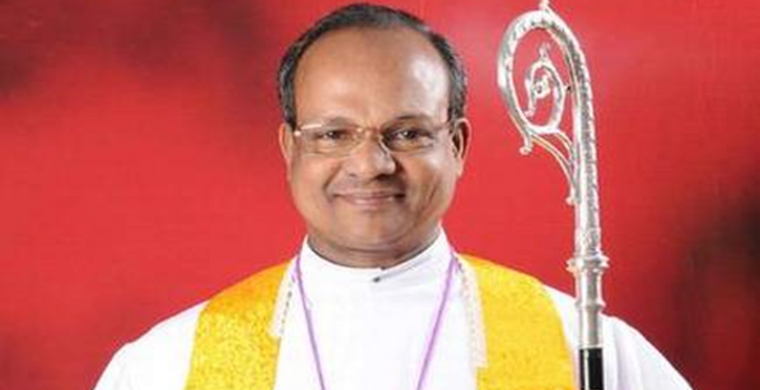Church of South India Elects New Moderator
The Rt. Rev. A. Dharmaraj Rasalam will be Moderator from 2020-2023 and is from South Kerala
By Joseph Muthuraj
Special to Virtueonline
www.virtueonline.org
January 11, 2020
The Rt. Rev. A. Dharmaraj Rasalam, 63, Bishop of the South Kerala diocese of the Church of South India has been elected by the Bishops' Council as the candidate for the office of Moderator in the Church of South India. The church is a member of the Anglican Communion, for the triennium 2020-2023.
His election was overwhelmingly affirmed by the General Synod of the Church of South India consisting of over 400 bishops, clergy and laity. They met to vote on 11 January 2020 in Trichirapalli, Tamilnadu.
It is hard to say whether the new leader of the CSI will work towards reforming the church and its administration and make sincere efforts to cleanse Church of South India Trust Association (CISTA) from illegal and fraudulent activities.
The reason for this concern is that the lobbyists who worked for him in the election are notably corrupt men in the church who are also playing a key role in blocking the Serious Fraud Investigation Office (SFIO), a statutory corporate fraud investigating agency in India, from investigating the financial mismanagement of the church.
His diocese, over the last ten years, is known for drawing huge sums of money as loans from banks by mortgaging many acres of church lands and valuable buildings. The outstanding loans face soaring interest rates and must be repaid.
There have been charges against bishop Rasalam and his associates that they allegedly collected huge sums of money illegally from students aspiring for admission in Dr. Somervell Memorial CSI Medical College run by the CSITA in Karakkonam, Trivandrum.
These concerns were made to look immaterial when the time came to choose the leader of the church. Many have been silenced on the premise that corruption is inevitable and that it is futile to try to fight it. The CSI is unlikely to feel constrained by increased moral instruction and compliance requirements as corruption is deeply concealed in the documents.
A corruption proof system should be part of the broader administrative structure providing by the participation of Government departments which should sufficiently allow stakeholders of the CSITA to scrutinize the performance and thereby demand general levels of transparency.
Leaders can hold on to their power, even when they are using it in ways that are clearly self-serving and harmful to the church. Theological education in India has failed to draw attention to this pattern of leadership and avoids being challenged for any debate on the issue.
The people in power collude in different ways; rationalise corrupt practices and allow the church to tolerate corruption on a vast scale. Theological colleges have chosen self-silence. In a huge corruption environment, there is no dog to bark before it could destroy the church's witness in India. India today is becoming much more hostile towards Christians and their religion.
END














